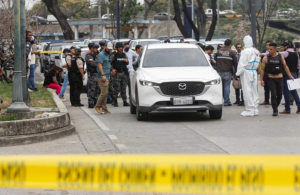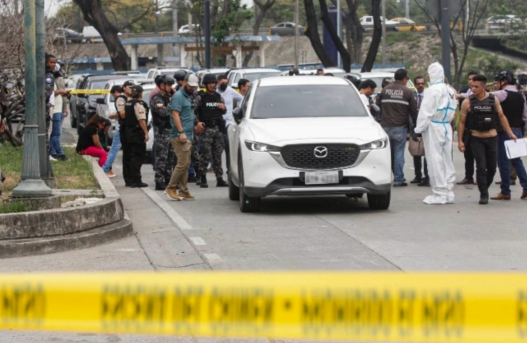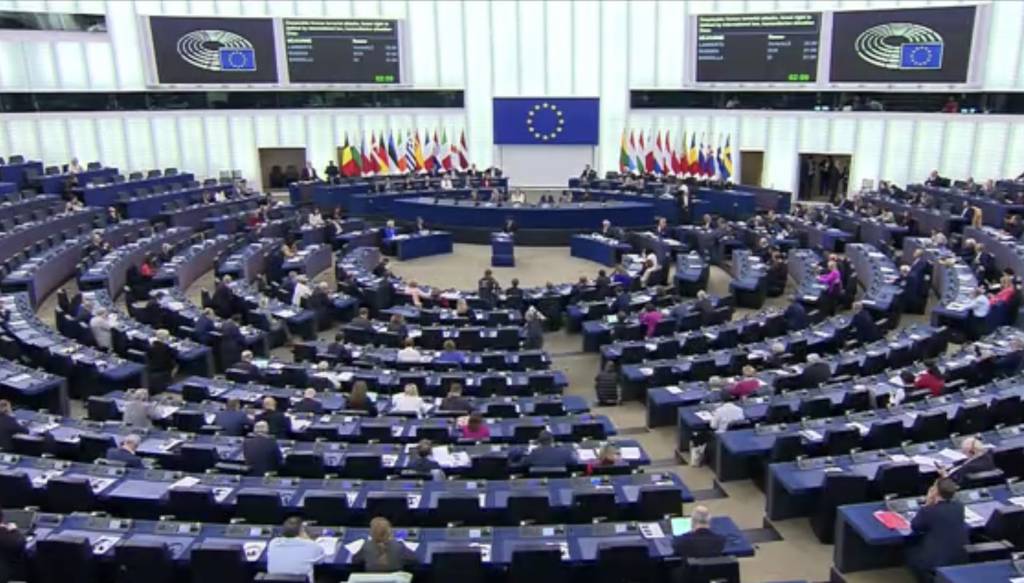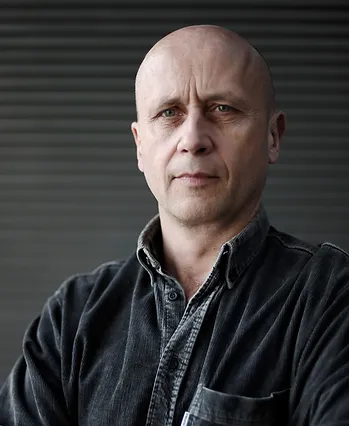
ECUADOR TERRORIZED BY GANGS; BANDITS SHOT DEAD PROSECUTOR INTERROGATING COLLEAGUES
By Maciej Stasiński
Prosecutor Cesar Suarez was killed in broad daylight as he was on his way to court. The government has waged a war against the gangs, but so far it is not winning.
It has only been a week since Ecuador decreed a state of emergency and a war against the all-powerful gangs, and it is already clear how hard it will be to win.
On Wednesday, January 17, thugs from one of the dozens of gangs operating in the country caught up with prosecutor Cesar Suarez, who was driving to court, on the street in Guayaquil and shot him in broad daylight at an intersection.
Suarez was one of the main investigators tracking the mafia and corrupt interests of the gangs that in recent years have managed to weave a web around the city, the police, the ministries and many other institutions. It was he who interrogated the 13 thugs who, on Tuesday, January 9, occupied a Guayaquil television studio for several hours, terrorizing the staff and broadcasting nationwide petitions for the government to stop persecuting them.
The captured criminals managed to explain to the prosecutor how they had managed to occupy the TV station, but he was unable to send prison warrants for the ringleaders who had ordered the attack.
ECUADOR IMPOSED A STATE OF EMERGENCY
The TV studio was finally liberated by the military, the bandits were arrested and President Daniel Noboa declared a state of emergency and announced the repression of gang terror.
For a week, the police and military patrolled the cities and prisons from where the gangs have freely run their empire of violence and lawlessness in recent years, holding several hundred prison and police officials hostage.
The government claims there are already results. Fifty-five combat operations have been carried out against the gangs, nearly 2,000 bandits have been arrested, five of them dead, and 32 hostages have been released. Two police officers were killed during these operations, and some prisons that were virtually gang headquarters and headquarters have reportedly been “recaptured”.
However, as the murder of prosecutor Suarez demonstrates, the battle is far from resolved. Guayaquil and other cities are slowly coming back to life since the streets are patrolled by the military armed to the teeth, but the morgues of many cities are full of corpses of the executed and decapitated, the families cannot afford to bury the bodies.
MORE AND MORE GANGS AND MURDERS
In recent years, the murder rate per 100,000 inhabitants in Ecuador has surpassed the highest statistics in Mexico, Venezuela or Colombia.
Until now, dozens of gangs have operated with virtual impunity, as the thugs have mayors, police commissioners, prosecutors and judges on their payrolls, and their ringleaders run the network from the secure prisons where their men formally served their sentences.
Recently, the terror increased when one of the main bandits, Adolfo Macias “Fito”, got tired of being behind bars. He has been on the run for 15 days.
President Daniel Noboa has named 22 gangs, which he has described as “terrorists”.
BUDGET CUTS HAVE TURNED THE PRISONS INTO BANDIT BARRACKS
For a long time, Ecuador’s gangs were small and few in number compared to those in Colombia, Peru or Mexico, where criminal organizations, mainly of narcos, have for decades been like criminal states cornering the drug industry, profiting from the legal economy and terrorizing local authorities.
For several years under the presidency of Rafael Correa (2007-17), gangs such as the Latin Kings or Los Ñetas were simultaneously fought by the police and pacified “in kind”, i.e., encouraged to integrate into society. They were legalized as youth groups and their members were given the possibility to study and work. The result was a drastic drop in homicides (from 18 per 100,000 inhabitants per year in 2008 to 5.6 nine years later), and some of their leaders even became deputies.
This policy collapsed under subsequent governments, as a result of austerity and an underestimation of the threat posed by the bandits, who did not disappear overnight.
At the same time, the number of inmates quadrupled, and in the following years budget cuts turned prisons into barracks and bandit barracks.
COCAINE NOW FLOWS THROUGH ECUADOR
But the real disaster came when the Colombian and Mexican cartels chose Ecuador as their new cocaine trafficking channel. They invested millions of dollars in expanding production and smuggling from inaccessible areas of the Amazon, equipped local collaborators with modern weapons and banditry skyrocketed.
The gangs have taken over trade from Pacific ports, captured customs and control large markets and wholesalers. They have a surplus of cars and rapid-fire weapons, buy up officials and mercilessly punish the reluctant.
Ecuador is now one of the main exporters of cocaine to the United States and Europe.
In 2019, rebellions and prison takeovers by bandits began. In four years, 500 prisoners died in fights with prison and anti-drug police.
In 2021, 70 inmates died during a prison riot, while in another 100 were hacked to pieces with machetes (some were decapitated and thrown into latrines).
By 2022, the country’s homicide rate had risen to 25.6 per 100,000 inhabitants, and by 2023 to 45. Ecuador had become a country half-governed by all-powerful thugs.
New President Daniel Noboa, who won the election last November, inherited from his predecessors a roiling bandit state.
————
Maciej Strasiński, a Polish journalist, is international editor of the daily Gazeta Wyborcza and a member of EditoRed.
This article was originally published in Polish in the daily Gazeta Wyborcza, with whose permission we reproduce it here.



